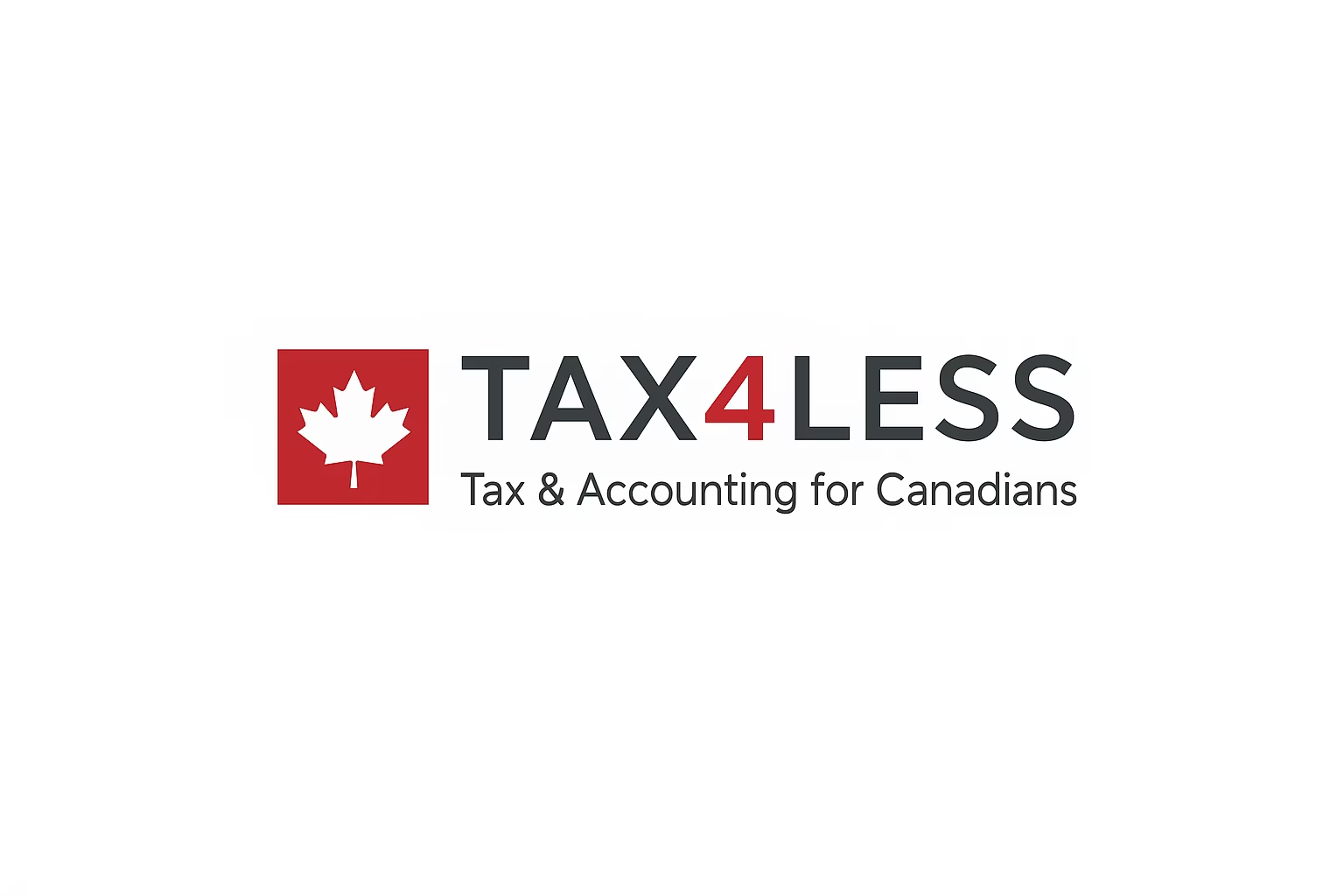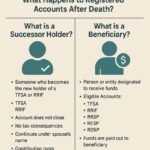What Is a Personal Services Business in Canada? Tax Rates, Rules & Strategies
If you’re a consultant, contractor, or freelancer operating through a corporation in Canada, you need to understand Personal Services Business (PSB) rules. The Canada Revenue Agency (CRA) has strict guidelines about who qualifies for small business tax benefits—and who doesn’t.
Failing to recognize when your corporation is classified as a PSB can lead to unexpected taxes, audits, and penalties. On the flip side, if you know the rules, there are strategies to reduce your tax burden legally and efficiently.
This guide will break it all down:
What is a personal services business?
How do PSB tax rates compare to regular corporate or self-employed tax rates?
What kinds of businesses are commonly classified as PSBs?
How can you pay yourself from a corporation if you’re considered a PSB?
Can setting up two corporations and charging management fees help reduce PSB tax liability?
Let’s get started.
What Is a Personal Services Business (PSB)?
A Personal Services Business is a corporation that exists mainly to provide services that an individual would usually perform as an employee. Essentially, if you’re working for one main client but have incorporated to get paid, the CRA may consider your corporation a PSB.
CRA’s PSB Criteria:
Your corporation might be a PSB if:
You (the shareholder) personally perform the services.
If not for the corporation, you would likely be considered an employee of the client.
You employ fewer than five full-time employees throughout the year.
The services are provided to clients directly by you, not subcontractors or a team.
Yes, it is still possible to avoid PSB classification even with only one client.
The key is to clearly prove independent contractor status using the 4 legal tests CRA uses — even when the corporation has a single payer.
Having one client does not automatically make it PSB — but we must show:
Control is not like employer-employee
He bears business risk and expenses
He provides his own equipment (truck)
He can hire others or subcontract
The payer does not supervise his work
Payment is invoice-based, not payroll-based
This is how we build your defence.
| Evidence / Document | Why It Helps |
|---|---|
| Multiple clients (or proof of actively seeking other clients) | Shows the business is not economically dependent on one payer; reduces “employee-like” perception. |
| Business website, LinkedIn business page, business cards, branding | Shows the corporation markets itself to the public as a service provider. |
| Written services agreement showing business-to-business relationship | Should explicitly state no employee relationship, contractor controls work, owns tools, etc. |
| Contractor provides own tools, laptop, software licenses, phone, etc. | Demonstrates operational independence. |
| Contractor controls schedule and working methods | Shows the payer is not supervising like an employer. |
| Invoices issued to the client (not payroll slips) | Reinforces B2B billing structure, not wage/salary. |
| Insurance held by the corporation (e.g., professional liability insurance) | Strong evidence of business risk and independence. |
| HST/GST registration and regular remittances | Indicates separate commercial operation. |
| Separate business bank account | Shows financial independence. |
| Payroll records (if corporation pays salary/dividends to owner) | Demonstrates corporate structure is real, not just a shell. |
| Accounting records showing business expenses and profit margin | Shows the business takes on costs and financial risk. |
| No company employee benefits (no vacation pay, no sick leave, no pension, etc.) | Avoids the appearance of employment. |
| Ability to subcontract work specified in agreement | A key indicator of entrepreneurial independence. |
| No exclusivity clause in the contract | Exclusive contracts with full-time hours often look like employment. |
✅ Your Strongest Factors (for a Truck Operator)
1. Own Truck & Expenses → Shows Business Risk
You will show:
Truck ownership or lease
Fuel receipts
Insurance (commercial)
Maintenance & repair bills
Safety compliance costs (CVOR / inspection reports)
Employees don’t pay these — only a business does.
2. Control Over Work
We need to state clearly that:
He chooses how to complete the job
No supervisor rides with him
He is not trained like an employee
He can refuse jobs / decide hours (within delivery requirements)
If there are messages showing dispatch only sends assignments but does not control work — include screenshots.
3. Ability to Hire a Relief Driver
This is very important.
Even if he has never hired anyone, we need the contract to show that:
The corporation may provide a qualified substitute driver to complete the work.
If the current contract does not mention substitution, we will add a one-page written addendum signed by both sides.
I can draft that for you.
4. Payment Structure
We show:
He issues invoices to the client
Client pays gross with no CPP/EI deductions
Work is not recorded like employee hours
If invoices do not exist, we create a simple monthly invoice template going forward.
✅ What We Will Include in the Response Package
To make the strongest case, submit:
| Document | Purpose |
|---|---|
| 4-year Service Agreement (lease) | Shows contractual independence |
| Addendum allowing subcontracting (I will draft) | Shows he is not tied like an employee |
| Truck ownership/lease + insurance | Proof of business tools & risk |
| Fuel + maintenance receipts | Operating cost proof |
| Invoices issued + payment statements | Shows payment is business-to-business |
| Description of Work (I will write it) | Explains independence and non-employment relationship |
| Ledger of expenses (fuel, repairs, etc.) | Supports deduction availability |
| Business registration + WSIB/WCB (if applicable) | Shows business identity |
Why Does It Matter?
Because PSBs are taxed at much higher rates and don’t get the same deductions and credits available to regular small businesses.
If you run a consulting or contracting business but are working like an employee with one client, CRA wants to ensure you’re not just using a corporation to avoid payroll taxes or defer personal income tax.
Examples of Businesses Often Considered PSBs
CRA judges each case individually, but certain industries are more likely to trigger PSB classification, including:
IT Consultants & Software Developers
(working for one tech company under contract)Financial Consultants & Accountants
(contracting for one major client)Management Consultants
(providing leadership or advisory services to one organization)Engineers, Architects, or Designers
(if contracted long-term by a single firm)Trainers, Coaches, or Educators
(working exclusively with one client)Freelancers of all types
(who essentially function as staff for their client)
If your corporation has multiple clients, hires employees, or operates an independent business with business risk, you’re less likely to be classified as a PSB.
Personal Services Business Tax Rate in Canada (2025)
Being classified as a PSB means you lose access to the small business deduction and other corporate tax advantages.
Tax Rate for Incorporated PSBs:
| Tax Type | Ontario Rate |
|---|---|
| Federal Base Rate (PSB) | 33% |
| Ontario Corporate Tax (PSB) | 11.5% |
| Combined PSB Rate | 44.5% |
Compare that to the small business tax rate of about 12.2% in Ontario for Canadian-controlled private corporations (CCPCs). The difference is massive.
Why So High?
PSBs are taxed as if the income is employment income, but without the employment benefits like EI, CPP matching, or vacation pay. CRA wants to prevent unfair tax deferral or splitting that would otherwise occur through a corporation.
Tax Rate for Self-Employed Professionals (Unincorporated)
If you’re self-employed but not incorporated, your income is taxed at personal income tax rates.
| Ontario Personal Tax Brackets (2025) | Combined (Fed + Prov) |
|---|---|
| First $53,359 | 20.05% |
| $53,359 – $106,717 | 24.15% |
| $106,717 – $165,430 | 29.65% |
| Over $235,675 | 53.53% |
Self-employed individuals pay CPP premiums, but no EI.
Paying Yourself from a PSB Corporation: What Are the Options?
If you operate a PSB, there are still ways to extract income from your corporation, but each has tax implications.
1. Salary
Deductible expense for the corporation
Taxed as employment income (source deductions required)
Reduces corporate income (helps minimize PSB tax)
2. Dividends
Paid from after-tax corporate income
Not deductible for the corporation
Taxed personally at dividend rates (varies by province)
3. Management Fees
Paid to another corporation for services
Must be reasonable, arm’s length, and legitimate
CRA scrutinizes this closely, especially for related parties
Recommended Approach:
For most PSBs, paying yourself a salary is usually the safest and most tax-effective way to avoid double taxation. It allows you to deduct the salary from PSB income, reducing your corporate tax bill.
Can You Use Two Corporations to Reduce PSB Tax?
Some consultants and contractors consider setting up two corporations as a strategy:
Operating Company (PSB income)
Management Company (charges fees to the PSB)
How It Works:
The operating company earns PSB income.
The management company charges management fees to the operating company.
The management company may qualify for small business deductions if it’s not a PSB.
Is This Legal?
It can be, but only if:
The management company performs real services (admin, HR, marketing, bookkeeping, etc.).
The fees are reasonable and market-based.
The structure is well-documented and not just for tax avoidance.
Risks:
CRA can deny deductions for management fees if they are seen as artificial or excessive.
If the management company is simply a shell, CRA can reassess taxes, charge penalties, and apply interest.
Potential Benefits:
If done correctly, this strategy can:
Split income between two corporations
Access the small business tax rate in the management company
Lower your overall effective tax rate
Real-World Example:
Imagine you’re an IT contractor in Ontario earning $200,000 annually through a PSB.
| Scenario | Tax Outcome |
|---|---|
| PSB income taxed directly | 44.5% tax rate on profits |
| Pay yourself salary (deductible) | Lowers corporate tax, personal income tax applies |
| Use two corporations (management fees) | Possible tax savings, but requires legal compliance and real services |
How Tax4Less.ca Can Help You Save
Tax4Less.ca specializes in working with consultants, contractors, and small business owners. We can help you:
Determine if you’re at risk of being classified as a PSB
Structure your business properly to minimize taxes legally
Set up management companies or corporate structures the right way
Avoid CRA audits and penalties
Plan your salary, dividends, and management fees effectively
Don’t Let the PSB Tax Rules Cost You Thousands
If you’re operating as a PSB—or think you might be—it’s critical to get professional advice now. Poor planning can lead to surprise tax bills, but smart strategies can help you keep more of what you earn.
✅ Contact Tax4Less.ca to Get Started
Book a consultation and get real answers tailored to your situation.
📞 Call us: 647‑825‑4243
📧 Email: tax.nehal@gmail.com
💼 Visit: https://www.tax4less.ca
- Canadian tax
- consultant tax Canada
- contractor tax guide
- corporate tax services
- CRA rules
- incorporated contractor
- management fees strategy
- personal services business
- personal tax returns
- PSB Canada
- PSB infographic
- PSB tax rate
- self-employed tax Canada
- small business tax
- tax planning Canada
- tax rates Canada
- Tax4less
- tax4less.ca
- Tax4Less.ca Inc

 Previous Post
Previous Post Next Post
Next Post